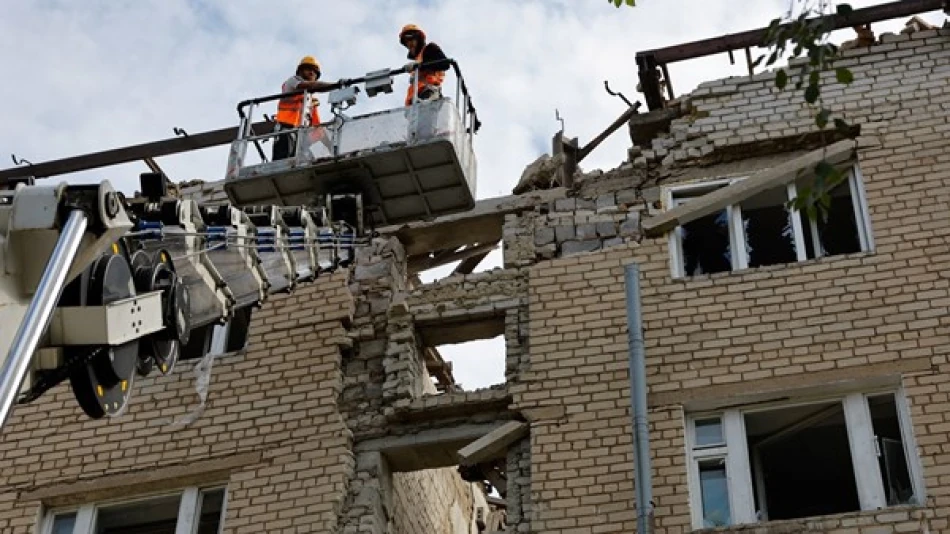
Russia Accuses Europe of Undermining Ukraine Peace Talks
Russia Blames Europe for Stalled Ukraine Peace Talks, Claims Openness to Dialogue
The Kremlin has accused European nations of deliberately obstructing peace negotiations with Ukraine, even as Moscow claims to remain open to diplomatic solutions nearly two years into the conflict. This latest diplomatic positioning comes as both sides face mounting pressure to find an exit strategy from a war that has reshaped global geopolitics and strained international relations.
Kremlin Points Finger at European "Obstruction"
Speaking to journalists on Friday, Kremlin spokesperson Dmitry Peskov acknowledged that peace negotiations between Russia and Ukraine have reached an impasse, but shifted blame to European powers rather than accepting responsibility for the diplomatic deadlock.
"Communication channels remain open and effective. Our negotiators have the opportunity to communicate through them. But to be more precise, there is currently a halt," Peskov stated, before adding: "The Russian side is still ready to continue the path of peaceful dialogue. But the fact is that the Europeans are already obstructing it."
Strategic Messaging Behind the Accusations
This latest statement reflects a familiar pattern in Russian diplomatic rhetoric—positioning Moscow as the reasonable party while casting Western allies as impediments to peace. The timing appears calculated to exploit potential war fatigue among European populations and create pressure on governments supporting Ukraine's defense efforts.
Historical Context of Failed Negotiations
Previous peace talks, including early negotiations in Belarus and Turkey during 2022, collapsed amid fundamental disagreements over territorial concessions and security guarantees. Russia's demands have consistently included recognition of occupied territories and limitations on Ukraine's future military capabilities—terms Ukraine and its Western allies have rejected as capitulation.
European Response and Strategic Implications
European nations have maintained that any sustainable peace must respect Ukraine's territorial integrity and sovereignty, principles that conflict with Russia's territorial gains since February 2022. The accusation of European "obstruction" likely aims to fracture Western unity by suggesting that European governments are prolonging Ukrainian suffering for geopolitical purposes.
Impact on International Relations
These statements come as some Western officials privately acknowledge the need for eventual diplomatic solutions, while publicly maintaining support for Ukraine's military resistance. Russia's framing attempts to position any future negotiations as Moscow's initiative rather than a response to military or economic pressure.
Analyzing Moscow's Diplomatic Strategy
By claiming continued openness to dialogue while blaming others for the impasse, Russia seeks to maintain international legitimacy without making substantive concessions. This approach mirrors tactics used in previous conflicts, where Moscow has used peace rhetoric to buy time, regroup militarily, or divide opposing coalitions.
The effectiveness of this strategy will largely depend on whether European public opinion shifts toward prioritizing immediate peace over long-term security concerns, and whether Ukraine's allies maintain their current level of military and economic support despite growing domestic pressures.
Most Viewed News

 Layla Al Mansoori
Layla Al Mansoori






